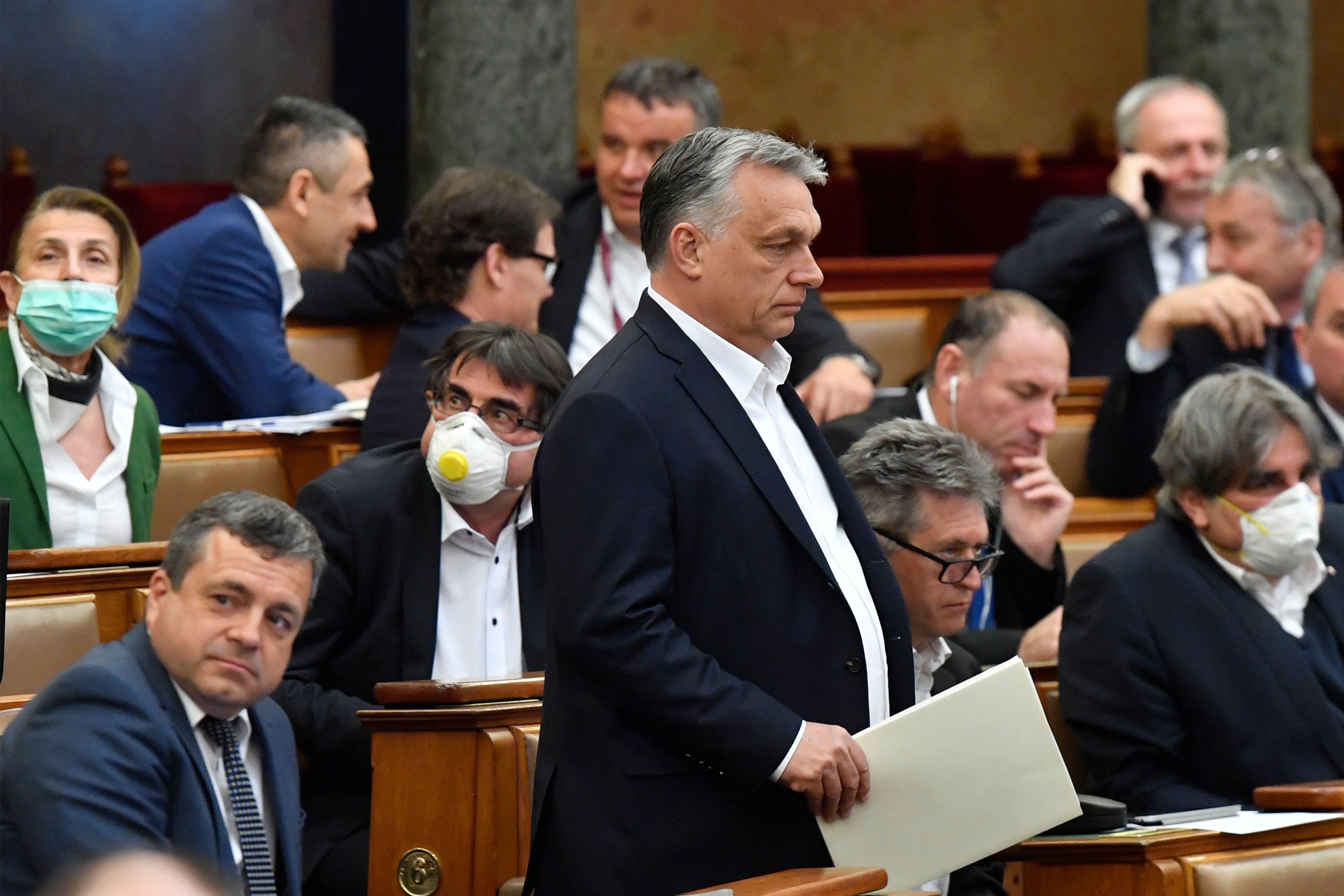Slate is making its coronavirus coverage free for all readers. Subscribe to support our journalism. Start your free trial.
It is time to kick Hungary out of the European Union and NATO. The country entered the Western alliance in the aftermath of the Cold War as a fledgling democracy, but has since reverted to autocracy.
Hungary crossed what should be a red line on Monday, as the country’s Parliament granted Prime Minister Viktor Orbán the power to rule by decree indefinitely. Opposition parties tried to set a time limit on those powers, but Orbán’s ruling Fidesz party pushed through his motion without restriction.
The measure’s putative rationale was to strengthen the government’s hand in fighting the coronavirus, which has infected 447 Hungarians and killed 15. But Orbán can cite the law to justify any measure on any subject. It is worth noting that in 2015 he declared a state of emergency to stave off the flow of refugees entering his country, and those emergency powers—which included shutting down media outlets critical of his policies—are still in force.
All of these steps violate the tenets of the EU’s Charter of Fundamental Rights. As the charter puts it, the whole point of the European Union was to build “a peaceful future based on common values,” including “freedom, equality,” as well as “the principles of democracy and the rule of law.” This includes the freedom “to receive and impart information and ideas without interference by public authority.”
Last week, anticipating the bill’s passage, the EU’s justice commissioner, Didier Reynders, said the union’s members would assess whether the Hungarian law violates their rule-of-law standards. Clearly it does, and appropriate steps should be taken if these standards—and the EU itself—are still to have any meaning.
Orbán’s steps also violate the precepts of NATO. The North Atlantic Treaty Organization is principally a security alliance, originally joining the United States and the Western European powers to deter and fend off an attack by the Soviet Union. However, Article 2 of the 1949 Washington Treaty—which created NATO—states that the members “will contribute toward the further development of peaceful and friendly international relations by strengthening their free institutions.”
Moreover, the treaty’s Membership Action Plan—signed in 1999, as several central and Eastern European countries (including Hungary) petitioned to join NATO—stated the point much more firmly and set forth some rules, which Orbán is now breaking.
“Future members,” the document stated, “must conform to basic principles embodied in the Washington Treaty such as democracy [and] individual liberty.” Aspirants, it added, “would also be expected … to demonstrate commitment to the rule of law and human rights.”
Again, Orbán is violating these principles and expectations.
Ironically, in the 1980s, as Timothy Garton Ash has written, Orbán was a leader of Hungary’s democratic movement, forcefully demanding the withdrawal of Soviet troops and pushing for human rights, free markets, and a civil society. Those days are long over.
This isn’t a matter of mere nomenclature. Members of the EU receive bountiful economic rewards. Members of NATO receive the security guarantee of the Washington Treaty’s Article 5, pledging all members that “an armed attack against one or more of them in Europe or North America shall be considered an attack against them all.”
The true democracies of the EU, such as they are, shouldn’t give up a single euro to the coffers of Hungary as long as Orbán rules by decree. Nor should the democracies of NATO pledge to give up a drop of blood to preserve his reign.
